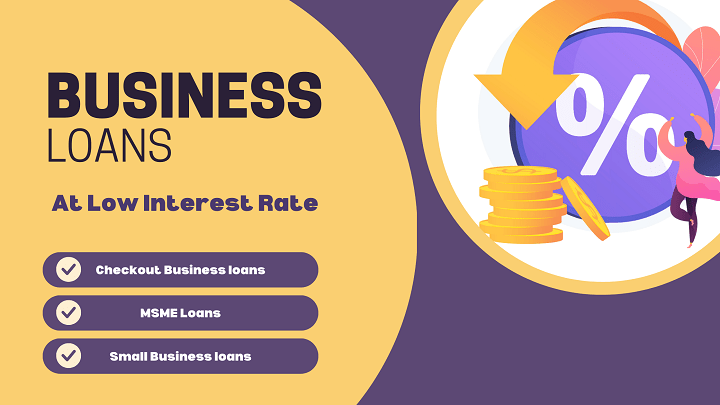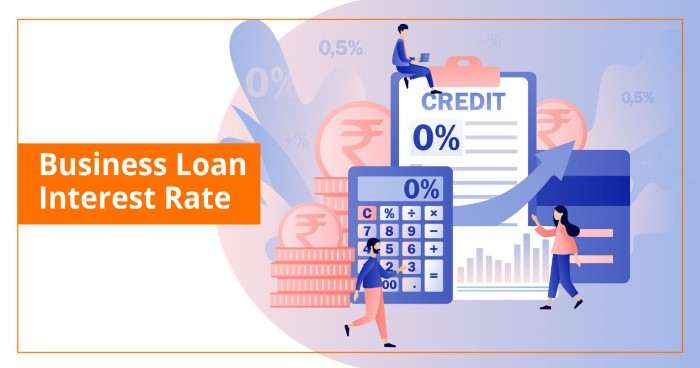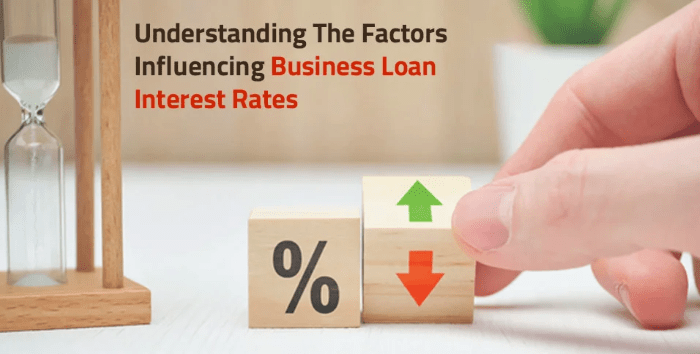
What is a Business Loan Interest Rate?
A business loan interest rate is the cost of borrowing money, expressed as a percentage of the loan amount. This rate is charged by lenders in addition to the principal amount borrowed and is typically paid over the life of the loan. The interest rate determines how much you’ll pay in addition to the amount you borrowed, and it can significantly impact the total cost of your loan.
Types of Interest Rates
There are two primary types of interest rates for business loans:
- Fixed Interest Rate: This type of rate remains constant throughout the life of the loan. Your monthly payments will not change, making it easier to budget and plan.
- Variable Interest Rate: This rate can fluctuate based on market conditions or a benchmark interest rate, such as the LIBOR (London Interbank Offered Rate). While variable rates can start lower than fixed rates, they may increase over time, leading to higher payments.
How Business Loan Interest Rates Work
Understanding how interest rates work helps you grasp their impact on your loan. Here’s a breakdown of how business loan interest rates function:
Amortization
Amortization is the process of paying off a loan over time through regular payments. For business loans, this typically involves monthly payments that cover both interest and principal. In the early stages of the loan, a larger portion of your payment goes towards interest, with the principal portion increasing over time.
Annual Percentage Rate (APR)
The APR is a broader measure of the cost of borrowing, including both the interest rate and any associated fees. It provides a more accurate picture of the total cost of the loan over its term. When comparing loan offers, the APR is a useful metric to understand the true cost of borrowing.
Compounding Interest
Interest can be compounded at various intervals, such as daily, monthly, or annually. Compounding means that interest is calculated on both the principal and the accumulated interest. The more frequently interest is compounded, the more you’ll end up paying in interest over the life of the loan.
Factors Influencing Business Loan Interest Rates
Several factors influence the interest rate you’ll receive on a business loan for budgeting your startup.
Credit Score
Your business’s credit score is a crucial factor in determining your interest rate. Lenders use this score to assess your creditworthiness and the risk of lending to you. A higher credit score generally results in a lower interest rate, while a lower score may lead to higher rates or difficulty obtaining a loan.
Loan Term
The term of the loan, or the length of time over which you’ll repay it, can impact the interest rate. Shorter-term loans often have lower interest rates compared to longer-term loans. However, shorter terms also mean higher monthly payments.
Loan Amount
The size of the loan can influence the interest rate. Larger loans may come with higher rates due to increased risk for the lender. Conversely, smaller loans might have higher rates because they generate less revenue for the lender.
Lender Type
Different types of lenders offer varying interest rates. Traditional banks, credit unions, and online lenders all have their own pricing structures. Online lenders often have higher interest rates due to their higher risk and operational costs, while traditional banks might offer lower rates but with stricter requirements.
Industry and Business Type
The industry in which your business operates can affect your interest rate. Lenders may consider certain industries to be higher risk, which could lead to higher rates. Additionally, the type of business (startup vs. established) may influence the rate you receive.
Economic Conditions
Interest rates are also influenced by broader economic conditions. For example, during periods of economic uncertainty or inflation, interest rates may rise. Conversely, in a stable or growing economy, rates might be lower.
How to Secure a Favorable Business Loan Interest Rate
Securing a favorable interest rate involves preparation and strategic planning. Here are some tips to help you achieve the best possible rate:
Improve Your Credit Score
Work on improving your business and personal credit scores before applying for a loan. Pay off outstanding debts, reduce credit card balances, and ensure all bills are paid on time.
Shop Around for Lenders
Compare loan offers from various lenders, including banks, credit unions, and online lenders. Look beyond the interest rate and consider the APR, fees, and loan terms.
Negotiate Terms
Don’t be afraid to negotiate with lenders. You may be able to secure a better rate by discussing your business’s financial health, loan amount, and term.
Consider Loan Terms Carefully
Choose a loan term that aligns with your business’s cash flow and repayment ability. A shorter term may have a lower interest rate, but ensure the monthly payments are manageable.
Build a Strong Business Plan
A well-prepared business plan can demonstrate your ability to repay the loan and potentially lead to better interest rates. Highlight your business’s strengths, financial projections, and growth plans.
Related Post:
Understanding business loan interest rates is essential for making informed financial decisions. By knowing how interest rates work, what factors influence them, and how to secure a favorable rate, you can better manage your business’s financing needs. Whether you’re looking to expand, manage cash flow, or start a new venture, a well-chosen loan with the right interest rate can be a powerful tool for success.






